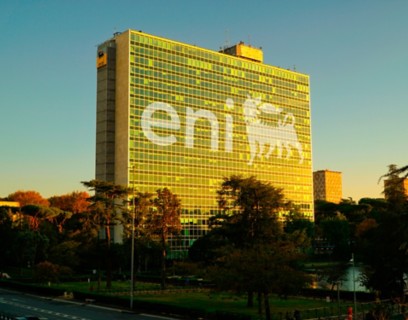Enipower: sustainability, environment and safety
The Enipower pillars: respect for the environment, protection of health and safety.

HSE Integrated Management System
The Integrated Management System for Health, Safety, Energy and the Environment outlines the responsibilities, procedures and tools necessary to pursue the programmes, achieve objectives for improvement and optimise environmental performance. The adoption of the management systems aims to continuously improve performance by detecting opportunities for technological and managerial actions that can save energy, reduce the environmental impact and prevent occupational diseases, injuries and accidents in the workplace. Enipower is equipped with Environmental Management Systems in accordance with standard ISO 14001:2015 and in compliance with the EMAS regulation, an Energy Management System in accordance with standard ISO 50001:2018 and a Management System in compliance ISO 45001:2018 (Safety Management System).
In full compliance with applicable laws and in accordance with the Code of Ethics, Model 231 and Eni policies, Enipower and all its structures operate in pursuit of the sustainable management of social and environmental matters as these relate to products and services in all areas of business.
Highlight
Code of Ethics
The Code of Ethics outlines the key values that guide actions at Eni. All Eni personnel, together with those who operate towards its objectives, are required to comply with the Code of Ethics. Integrity and transparency are the principles that guide Eni's actions when outlining an administrative structure and a control set-up that fits the size, complexity and operational structure, when adopting an effective system to provide internal auditing, and when communicating with shareholders and stakeholders. These values are set forth in the Code of Ethics, approved by Eni's Board of Directors on 14 March 2008, which replaces the previous Code of Practice written in 1998, updated on 10 April 2014 and most recently on 23 November 2017. Administrators, auditors, management and, generally speaking, all Eni employees, as well as all those who operate in Italy and internationally to pursue Eni's objectives, are required to comply with the principles found in the Code of Ethics, within the scope of their own roles and responsibilities. The Code of Ethics provides tangible behavioural policies, so that the principles found in the code can serve as a practical guide for company operations. Enipower's governance system is based on sharing the values, rules and responsibilities sanctioned by the Eni Code of Ethics.
Environmental Statements
Environmental Statements by Enipower, Enipower Mantova and Sef are issued in compliance with the EMAS regulation and are updated annually. Said documents are published on the website and describe our environmental policy, key environmental aspects, objectives and targets as well as environmental data for significant aspects and all environmental actions.
Sustainability Report
Enipower publishes its Sustainability Report annually. The actions that define the application of a sustainable development model are described in the document. The aim of generating value for the community, in the present and above all the future, is reflected in the focus on social responsibility and environmental protection matters.
EMAS Registration
As part of its participation in the EMAS regulation, Enipower, Enipower Mantova and Sef have adopted an environmental management system compliant with European Regulation 1221/2009 and hold the relevant registration issued by the Ecolabel and Ecoaudit Committee.
Code of Ethics
Code of Ethics
The Code of Ethics outlines the key values that guide actions at Eni. All Eni personnel, together with those who operate towards its objectives, are required to comply with the Code of Ethics. Integrity and transparency are the principles that guide Eni's actions when outlining an administrative structure and a control set-up that fits the size, complexity and operational structure, when adopting an effective system to provide internal auditing, and when communicating with shareholders and stakeholders. These values are set forth in the Code of Ethics, approved by Eni's Board of Directors on 14 March 2008, which replaces the previous Code of Practice written in 1998, updated on 10 April 2014 and most recently on 23 November 2017. Administrators, auditors, management and, generally speaking, all Eni employees, as well as all those who operate in Italy and internationally to pursue Eni's objectives, are required to comply with the principles found in the Code of Ethics, within the scope of their own roles and responsibilities. The Code of Ethics provides tangible behavioural policies, so that the principles found in the code can serve as a practical guide for company operations. Enipower's governance system is based on sharing the values, rules and responsibilities sanctioned by the Eni Code of Ethics.
Environmental Statements
Environmental Statements
Environmental Statements by Enipower, Enipower Mantova and Sef are issued in compliance with the EMAS regulation and are updated annually. Said documents are published on the website and describe our environmental policy, key environmental aspects, objectives and targets as well as environmental data for significant aspects and all environmental actions.
Sustainability Report
Sustainability Report
Enipower publishes its Sustainability Report annually. The actions that define the application of a sustainable development model are described in the document. The aim of generating value for the community, in the present and above all the future, is reflected in the focus on social responsibility and environmental protection matters.
EMAS Registration
EMAS Registration
As part of its participation in the EMAS regulation, Enipower, Enipower Mantova and Sef have adopted an environmental management system compliant with European Regulation 1221/2009 and hold the relevant registration issued by the Ecolabel and Ecoaudit Committee.
Enipower
The Eni company dedicated to the production of electricity and steam


















